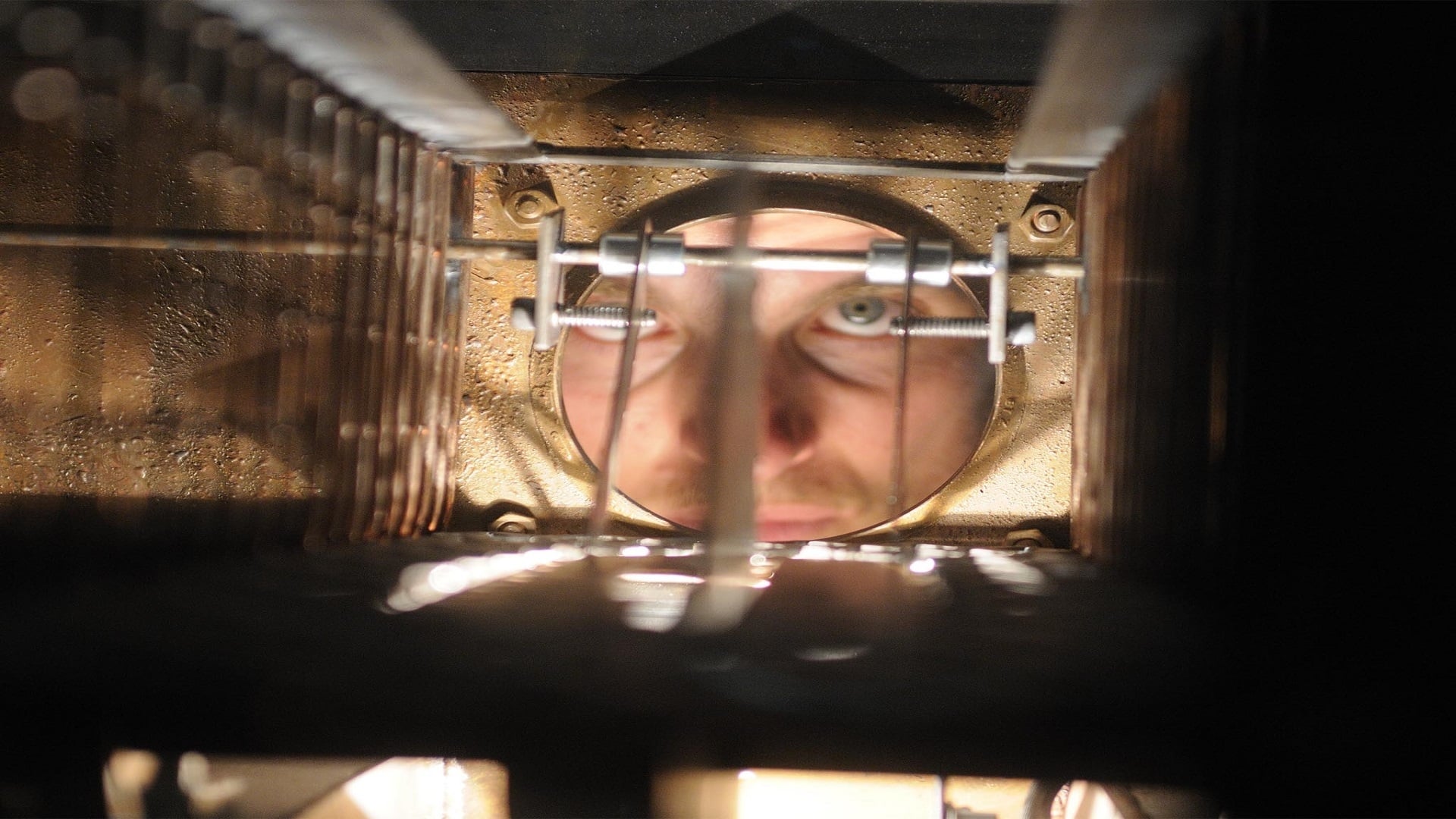
In Extremis: The Saw Franchise and Perjury
Disclaimer: Hello. Do you want to play a game? In your right hand is a phone you can use to contact independent legal advice. In your right hand is the mouse scrolling down this article. If you read this article and follow everything in it without contacting counsel; you lose. If you read without watching the films; they are spoiled. Hurry up. Watch or spoil. Make your choice.
If it’s Hallowe’en… it must be Saw.(1) So was the rallying cry of a film franchise spanning 13 years consisting of eight films, two video games, eight haunted attractions, one rollercoaster, and a comic book.(2) After a nearly four years hiatus, the franchise returns this month with Spiral. The films may be disparaged by viewers as the banner representative of the torture porn subgenre, but real fans know that they should instead be faulted for using more spinning dolly shots than Michael Bay on a tequila bender.(3) Say what you want about these films–the fans literally gave their blood for them, including protesting the Food and Drug Administration’s homophobic blood donation rules.(4)
So, in honour of this film franchise–let’s play a game. You are Art Blank (Louis Ferreira), the lawyer in Saw IV (2007), who reappears in archive footage for Saw V (2008), and Saw 3D aka Saw: The Final Chapter (2010). You do not survive these films. What should you have done differently to make it out alive?
First, you should explain to Jigsaw how the ethics of law work. Art ends up in two different “tests,” forced to act as an accomplice, and ultimately killed because he did his job defending an alleged child abuser… also because no one stops to discuss anything in these films even when there is no countdown imposed. Everyone deserves a zealous defence and is presumed innocent unless the prosecution can successfully prove all the elements of their case.(5) A defence lawyer will not normally ask their client if they are factually guilty: whether they did the act. Nevertheless, a lawyer may not lie to a judge or jury–contrary to popular belief. If Art Blank knew his clients factually committed an offence, he would only be able to argue about what the prosecutor could or could not prove and could not put him on the stand if he would lie. Jigsaw would ignore this logic. He famously does not understand the definition of murder or killing, and ethics might be lost on a serial killer after all.

Second, you might study the law. In Saw IV, Art’s client Rex (played by Ron Lea, the character has no last name, so I will assume it is Rex, T) is assaulted by Officer Daniel Rigg (Lyriq Bent) and has his cheek and nose broken. Art then files a civil lawsuit on behalf of his client and asks for officer Rigg to be suspended. Officer Rigg is investigated by Internal Affairs for his actions and Detective Mark Hoffman (Costas Mandylor), his partner, falsely swears an affidavit stating that Rigg was assaulted by Rex first. Then, Detective Hoffman says “the charges are already being dropped.” What charges?
I want to make a few things clear. We are not told about any charges pending against Rigg, as he was being sued civilly. We are not told what type of action the lawsuit was but we can assume assault (touching another person with intent to cause harm without consent) and battery (offensive and intentional contact, direct or indirect, which causes injury),(6) as well as a lawsuit against the Police Department for vicarious liability (Rigg’s employer being responsible for his harmful actions).(7) A civil action only ceases by the plaintiff discontinuing the action, a decision of the court, or by consent by both parties usually in some form of settlement.
Filing an affidavit–whether false or true–does not make a civil lawsuit disappear. A statutory declaration is a sworn document or viva voce (oral testimony) evidence. There is still good evidence to prove a battery case against Officer Rigg. Rex is injured as evidence of damage and Rex’s wife was an eyewitness. Hoffman implies the wife’s testimony is not corroborative as she has as much to gain from a settlement as Rex does. Sure, a third-party witness with no vested interest would provide better evidence, but police evidence is no better than that provided by Rex and his wife. The weight of the evidence is for a judge or jury to determine.
More importantly Art Blank can call both Officer Rigg and Detective Hoffman to testify in the civil trial. Rigg will need to lie under oath to support his case. Detective Hoffman will have to continue to lie under oath and if there are inconsistencies in his testimony at trial, during depositions, or in his affidavit then that is perjury.(8)

Rigg could then be charged with first degree perjury(9) and Hoffman could be charged with first, second,(10) or third-degree perjury(11) for lying under oath, misleading internal affairs with his affidavit, and filing a false statutory declaration. That is, unless Detective Hoffman withdraws his statutory declaration,(12) Officer Rigg and the police might lose their civil case. The police may want to settle the case to avoid any media blowback or a higher award at trial. Hoffman and Rigg might even have to retire from the force, preventing a lot of abuse of power in the future…but I am being far too optimistic about lawsuits against the police; I have a rose-coloured bear trap on my head.
Third, you, as Art Blank, should retire from law, as you act illogical. In Art’s first trap, his mouth and another person’s eyes are sewn shut. The blinded person panics and throws a hatchet. Art does not use the hatchet to cut open his stitches and communicate with the man to save them both. Art instead kills the man and opens his mouth, causing infinitely more damage. I understand that bad decision-making is necessary for these movies to function but this sequence is the imbecilic creation of Rube Goldberg’s edge-lord grandchild.
Since I mostly discussed Saw IV, as a standalone I would give it a 4/10. I enjoy that there is an internal logic to Darren Lynn Bousman’s trilogy (Saw II, III, and IV) and I appreciate the introduction of the FBI agents into the story. However, the film has immense hurdles it does not overcome: it delves way into Jigsaw’s backstory as an excuse to keep Tobin Bell on screen, but this is to the determinant of the plot. The shot composition and editing feel like a bargain bin version of Seven (1995); and you need to see the other films for it to make sense. Legally this film gets a 1/10 for its understanding of how lawyers and police interact and how much trouble false testimony gets you in.
- This article is scheduled to be released in May to coincide with Spiral (2021); if you are reading this on Hallowe’en then the production release has fallen prey to another trap.
- Fandom Inc., Saw Official Wiki. Fandom Inc. 2019. sawfilms.fandom.com/wiki/Saw_(franchise). Accessed online May 6, 2021.
- Torture porn was a term allegedly coined by cinema critic David Edelstein in reference to Eli Roth’s Hostel (2005) – David Edelstein, "Now Playing at Your Local Multiplex: Torture Porn”. New York Magazine, February 6, 2006. Archived 2007-10-11 at the Wayback Machine, web.archive.org/web/20071011200524/http://nymag.com/movies/features/15622/. Accessed online May 6, 2021.
- Brooks Barnes, “Movie’s Ads Protest Rules Restricting Gay Men from Donating Blood.” The New York Times, September 24, 2017, www.nytimes.com/2017/09/24/business/media/saw-blood-donations-gay.html. Accessed online May 6, 2021; Note that although an initial gimmick to promote the franchise, Saw fans donated 120,000 pints of blood at blood drives organized by Lionsgate’s brand officer Tim Palen, resulting in being awarded by the American Red Cross.
- Canon 7, ABA Model Code of Professional Responsibility; Federation of Law Societies of Canada, Model Code of Professional Conduct (2014), online: https://flsc.ca/wp-content/uploads/2014/12/conduct1.pdf at Chapter 4.1-1[4]; Presumption of innocence Coffin v. United States, 156 U.S. 432 (1895).
- Wex, Assault and Battery. Cornell Law School Legal Information Institute 2019, www.law.cornell.edu/wex/assault_and_battery. Accessed online May 6, 2021.
- Wex, Vicarious Liability. Cornell Law School Legal Information Institute 2019, www.law.cornell.edu/wex/vicarious_liability. Accessed online May 6, 2021.
- New York Annotated Penal Code, L.1965, c. 1030, § 210.20 Perjury; pleading and proof where inconsistent statements involved; People v. Lillis (4 Dept. 1956) 3 A.D.2d 44, 158 N.Y.S.2d 191; although more proof of his knowledge of the falsehood may be necessary and this section may not be available if the falsehood comes out of direct testimony and cross-examination – People v. Glass (2 Dept. 1920) 191 A.D. 483, 181 N.Y.S. 547; People v Jones, 2002, 192 Misc.2d 649, 747 N.Y.S.2d 308.
- New York Annotated Penal Code, L.1965, c. 1030, § 215.05 Perjury in the first degree; People v. Hadid (2 Dept. 2014) 121 A.D.3d 811, 993 N.Y.S.2d 754 – Note that I chose New York law as several references in the franchise including badge design suggest it takes place in New York, despite the cops being called the Metropolitan Police Department instead of the NYPD.
- New York Annotated Penal Code, L.1965, c. 1030, § 210.10 Perjury in the second degree People v. Faber (3 Dept. 1939) 257 A.D. 473, 14 N.Y.S.2d 96; People v. Peck, 1911, 146 A.D. 266, 130 N.Y.S. 967, affirmed 203 N.Y. 669, 99 N.E. 1114.
- New York Annotated Penal Code, L.1965, c. 1030, § 210.05 Perjury in the third degree; People v. Ostrander, 1892, 64 Hun 335, 45 N.Y.St.Rep. 555, 19 N.Y.S. 324, appeal dismissed 135 N.Y. 638, 32 N.E. 646, affirmed 135 N.Y. 639, 32 N.E. 647; People v. Smilen, 1942, 33 N.Y.S.2d 803; People v. Robertson, 1824, 3 Wheel.Crim. 180; People v. Workman (2 Dept. 1953) 282 A.D. 703, 122 N.Y.S.2d 2.
- New York Annotated Penal Code, L.1965, c. 1030, § 215.05 – it is an affirmative defence to retract a false statement in a proceeding before it became obvious that its falsity would be exposed; People v. Ezaugi, 1957, 2 N.Y.2d 439, 161 N.Y.S.2d 75, 141 N.E.2d 580.
- Sobel, Nathaniel. “What Is Qualified Immunity, and What Does It Have to Do with Police Reform?” June 10, 2020, www.lawfareblog.com/what-qualified-immunity-and-what-does-it-have-do-police-reform. Accessed online May 6, 2021

